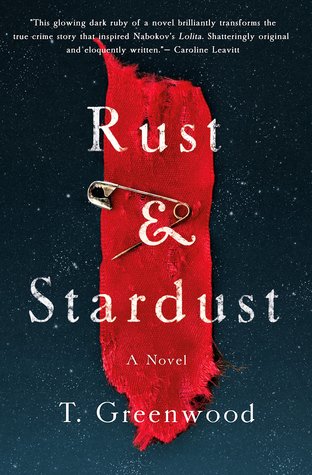Throwback Titles are books that I've been meaning to read for a very, very long time, but have just now gotten around to it. In other words, it's that book you picked up in middle school that may have been a little bit above your reading level, and also happened to have 14 sequels. And what do you, a rational adult do now that you've realized that you stopped a mere five books from finishing the series? Continue, of course.
That's most of my stories, but I consider a throwback title to be any book 5 or more years old. Let's clear these babies out of to-be-reads and remind people of their favorite 2005 novel! I'll be posting a throwback title every Thursday (naturally). If you'd like to join in, please link to your post in the comments and use my graphic (above) in your own post.
-------------------------------------------------------------------------------
 A Long Way Gone
A Long Way Gone
by Ishmael Beah
Pages: 229
Publication Date: February 13th, 2007
Cover Comments: I didn't look at this cover in detail since I was listening to the audiobook, but now that I do, it's striking. The small size and stature of the boy juxtaposed with the weight of his gun and bayonet is sad and frightening.
First Lines:
"My high school friends have begun to suspect I haven't told them the full story of my life."
"My high school friends have begun to suspect I haven't told them the full story of my life."
The devastating story of war through the eyes of a child soldier. Beah tells how, at the age of twelve, he fled attacking rebels and wandered a land rendered unrecognizable by violence. By thirteen, he’d been picked up by the government army, and became a soldier.
This is how wars are fought now: by children, hopped-up on drugs and wielding AK-47s. Children have become soldiers of choice. In the more than fifty conflicts going on worldwide, it is estimated that there are some 300,000 child soldiers. Ishmael Beah used to be one of them.
What is war like through the eyes of a child soldier? How does one become a killer? How does one stop? Child soldiers have been profiled by journalists, and novelists have struggled to imagine their lives. But until now, there has not been a first-person account from someone who came through this hell and survived.
In A Long Way Gone, Beah, now twenty-five years old, tells a riveting story: how at the age of twelve, he fled attacking rebels and wandered a land rendered unrecognizable by violence. By thirteen, he’d been picked up by the government army, and Beah, at heart a gentle boy, found that he was capable of truly terrible acts.
This is a rare and mesmerizing account, told with real literary force and heartbreaking honesty.
Review
This was a hard read, as can be expected (or listen, since I got the audiobook version). Beah's memoir covers his childhood, starting when war broke out in his area and he had to go on the run to avoid being killed or forced into being a child soldier. As the reader already knows from the subtitle of the book, running did not work, and Beah is ultimately forced into the army and brainwashed into viewing the rebels the army is fighting as the enemy, and the ultimate reason for the upheaval of his life.
The writing is sparse, but with striking details that jump out at you every once in a while. Much of the book describes Beah and his various companions' travels before their conscription into the army, where they went for long stretches of time without regular food or water and were regarded with suspicion by almost every village they passed through, the villagers fearing that they were boy soldiers themselves. This portion dragged on a bit, but was necessary for understanding how the army was almost a welcome respite after Beah's struggles. In the village housing the army that the boys are taken to, they find peace for the first time in a long time. Until it's time to go to battle. Beah and his fellow soldiers fight for revenge for their ravaged villages and families, but none of them truly know what they're fighting for, ultimately. They're led around, following orders but kept in the dark as to the reasons why.
Beah's story is haunting in its horrible truths and the distant familiarity of it. I know that in far-off countries, terrible wars are being fought, and boy soldiers are still very much a reality. A Long Way Gone brings that reality to life, right in your face in a way you can't turn away from. It's not a pleasant book, but is an important one.
The writing is sparse, but with striking details that jump out at you every once in a while. Much of the book describes Beah and his various companions' travels before their conscription into the army, where they went for long stretches of time without regular food or water and were regarded with suspicion by almost every village they passed through, the villagers fearing that they were boy soldiers themselves. This portion dragged on a bit, but was necessary for understanding how the army was almost a welcome respite after Beah's struggles. In the village housing the army that the boys are taken to, they find peace for the first time in a long time. Until it's time to go to battle. Beah and his fellow soldiers fight for revenge for their ravaged villages and families, but none of them truly know what they're fighting for, ultimately. They're led around, following orders but kept in the dark as to the reasons why.
Beah's story is haunting in its horrible truths and the distant familiarity of it. I know that in far-off countries, terrible wars are being fought, and boy soldiers are still very much a reality. A Long Way Gone brings that reality to life, right in your face in a way you can't turn away from. It's not a pleasant book, but is an important one.
☆☆☆☆
4/5














